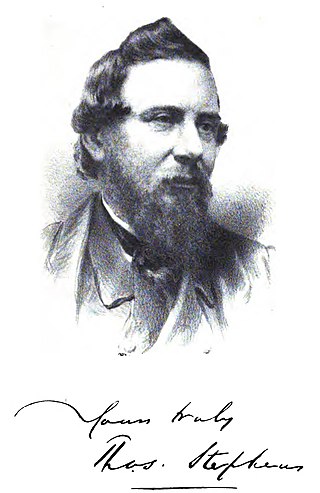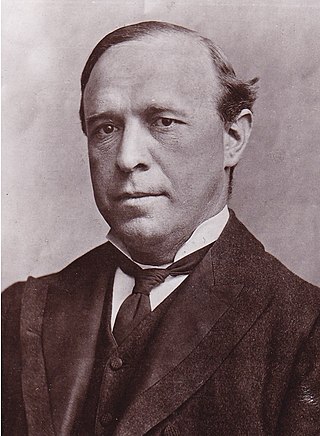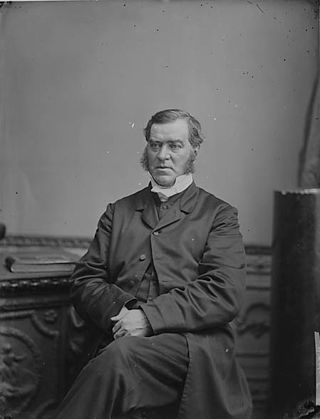
John Bodvan Anwyl, also known as J. Bodvan Anwyl (1875-1949), was an English-born Welsh Congregational minister, lexicographer, editor, translator, and author.

John Bodvan Anwyl, also known as J. Bodvan Anwyl (1875-1949), was an English-born Welsh Congregational minister, lexicographer, editor, translator, and author.
Anwyl was born in Chester, England on 27 June 1875. His parents were Ellen (née Williams) and John Anwyl, who was a lay preacher and whose family was from Caerwys, Flintshire. His mother's family was from the Llangwnnadl area. His older brother was Sir Edward Anwyl. [1]
In 1899, he became a Congregationalist minister of the Elim Welsh Independent Church, Carmarthen. [1] [2] Having struggled with deafness, in 1904 he accepted a position in Pontypridd to manage the Glamorgan Mission to the Deaf and Dumb, which he held for fifteen years. Anwyl then worked for two years for the National Library of Wales. [1] [2] The Board of Celtic Studies of the University of Wales led a project for a Welsh dictionary, for which he was appointed secretary in 1921. [1]
He wrote newspaper articles and books, translated books, and was an editor of Spurrell's Welsh-English Dictionary (1914) and Spurrell's English-Welsh Dictionary (1916). [1] [a] He translated books by the London Missionary Society into Welsh. He wrote Y Pulpud Bach (The Pulpit Small, 1924), Fy Hanes i fy Hunan (My Memoir, 1933), Englynion (1933), and Yr Arian Mawr (The Big Money, 1934). [1]
He retired to Llangwnnadl in 1935. Anwyl drowned on 23 July 1949 and was buried in the churchyard at Penllech, Gwynedd. [1] [2] His papers are archived at the National Library of Wales. [2]

Dolgellau is a town and community in Gwynedd, north-west Wales, lying on the River Wnion, a tributary of the River Mawddach. It was the traditional county town of the historic county of Merionethshire until the county of Gwynedd was created in 1974. Dolgellau is the main base for climbers of Cadair Idris and Mynydd Moel which are visible from the town. Dolgellau is the second largest settlement in southern Gwynedd after Tywyn and includes the community of Penmaenpool.

The National Library of Wales, in Aberystwyth, is the national legal deposit library of Wales and is one of the Welsh Government sponsored bodies. It is the biggest library in Wales, holding over 6.5 million books and periodicals, and the largest collections of archives, portraits, maps, and photographic images in Wales. The Library is also home to the national collection of Welsh manuscripts, the National Screen and Sound Archive of Wales, and the most comprehensive collection of paintings and topographical prints in Wales. As the primary research library and archive in Wales and one of the largest research libraries in the United Kingdom, the National Library is a member of Research Libraries UK (RLUK) and the Consortium of European Research Libraries (CERL).

Edward Williams, better known by his bardic name Iolo Morganwg, was a Welsh antiquarian, poet and collector. He was seen as an expert collector of Medieval Welsh literature, but it emerged after his death that he had forged several manuscripts, notably some of the Third Series of Welsh Triads. Even so, he had a lasting impact on Welsh culture, notably in founding the secret society known as the Gorsedd, through which Iolo Morganwg successfully co-opted the 18th-century Eisteddfod revival. The philosophy he spread in his forgeries has had an enormous impact upon neo-Druidism. His bardic name is Welsh for "Iolo of Glamorgan".
John Ellis Caerwyn Williams FBA, was a Welsh scholar. His fields of study included the literatures of the Celtic languages, especially Welsh and Irish literature. He published books in both English and Welsh.

John Davies was one of the leading scholars of the late Renaissance in Wales. He wrote a Welsh grammar and dictionary. He was also a translator and editor and an ordained minister of the Church of England. His name is traditionally associated with the parish of Mallwyd, Gwynedd, where he was rector from 1604 until his death in 1644.

Daniel Silvan Evans was a Welsh clergyman, scholar and lexicographer. Educated at the Independent College in Brecon, Silvan Evans worked as a schoolmaster for five years. On marriage he conformed to the Established Church, studying at St David's College, Lampeter, where he became lecturer in Welsh. Ordained deacon in 1848 and priest the following year he served curacies at Llandegwning parish in Llŷn and from 1852 to 1862 at nearby Llangian, Caernarfonshire. In 1862 he was appointed to the living of Llanymawddwy, Merioneth.

William John Gruffydd was a Welsh scholar, poet, writer and editor, and the last Member of Parliament to represent the University of Wales seat.
Geiriadur Prifysgol Cymru (GPC) (The University of Wales Dictionary) is the only standard historical dictionary of the Welsh language, aspiring to be "comparable in method and scope to the Oxford English Dictionary". Vocabulary is defined in Welsh, and English equivalents are given. Detailed attention is given to variant forms, collocations, and etymology.

Thomas Stephens was a Welsh historian, literary critic, and social reformer. His works include The Literature of the Kymry (1849,1876), Madoc: An Essay on the Discovery of America by Madoc ap Owen Gwynedd in the Twelfth Century (1858,1893), and Orgraff yr Iaith Gymraeg (1859), as well as a number of prize-winning essays presented at eisteddfodau between 1840 and 1858. He was the first Welsh historian and literary critic to employ rigorous scientific methods, and is considered to have done more to raise the standards of the National Eisteddfod than any other Welshman of his time. Stephens also figured prominently in efforts to implement social, educational and sanitary reforms both locally in Merthyr Tydfil and more broadly throughout Wales.
This article is about the particular significance of the year 1949 to Wales and its people.

William Llewelyn Williams known as Llewelyn Williams, was a Welsh journalist, lawyer and radical Liberal Party politician.

William Ambrose, whose bardic name was Emrys, was a 19th-century Welsh-language poet and preacher. Many sermons of his were published and some of his poems used as hymns.
This article is about the particular significance of the year 1933 to Wales and its people.
This article is about the particular significance of the year 1914 to Wales and its people.
This article is about the particular significance of the year 1866 to Wales and its people.

Sir Edward Anwyl was a Welsh academic, specializing in the Celtic languages.

Anwyl of Tywyn are a Welsh family who claim a patrilinear descent from Owain Gwynedd, King of Gwynedd from 1137 to 1170 and a scion of the royal House of Aberffraw. The family motto is: Eryr eryrod Eryri, which translates as "The Eagle of the Eagles of Snowdonia. The family lives in Gwynedd and speak Welsh.
William Maurice (1620–1680) was a well-known seventeenth-century collector and transcriber of Welsh manuscripts and books from Denbighshire, Wales.
William Spurrell was a printer and Welsh publisher, whose name is associated with one of the most popular Welsh language dictionaries, the Spurrell's Welsh Dictionary English-Welsh.
Alwyn David Rees was a Welsh geographer, social anthropologist and Welsh nationalist, who wrote as Alwyn D. Rees. After studying geography and anthropology at the University College of Wales, Aberystwyth, he was a tutor in the College's External Department from 1936 to 1946. He was a lecturer in the Department of Geography and Anthropology until 1949, when he was appointed Director of the External Studies Department. Rees pioneered the rural sociology of Britain with Life in a Welsh countryside (1950), a community study of the Welsh village of Llanfihangel yng Ngwynfa. From 1966 until his death he edited the Welsh magazine Barn.